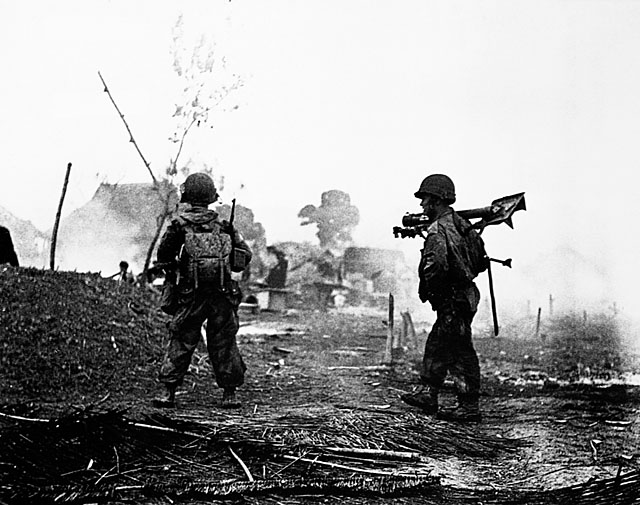 |
|||||||||||
|
July/August 2012
Dien Bien Phu From All Sides |
|||||||||||
 In 1954 few Americans had ever heard of Vietnam. And yet in the preceding decades, the people of Vietnam had lived under a French colonial system with an incipient independence movement, only to have the French uprooted by the imperial Japanese Empire during World War II. Vietnamese resistance was supported by the United States. When Emperor Hirohito surrendered, the Viet Minh declared independence. But when the French tried to reclaim their Indochinese colonies, the Americans—to contain the communists—bankrolled France’s nine-year war.
In this special issue, three historians examine Dien Bien Phu from the perspective of the three nations involved. John Prados writes about the foiled attempt by the French to cling to Indochina; Lady Borton addresses Vietnamese strategies to evict the French; and Marc Leepson describes America’s uncomfortable transition from anti-colonialist to cold warrior.
But in 1954 most members of Vietnam Veterans of America were slogging through elementary school, and wars were being fought in backyards between Cowboys and Indians or Yankees and Rebels. —Michael Keating, Editor |
|||||||||||
| |
|||||||||||
|
|||||||||||
8719 Colesville Road, Suite 100, Silver Spring. MD 20910 | www.vva.org | contact us |
|||||||||||









 In 1954, very few Americans could have located Vietnam on a map. And nearly none could have pointed out the remote northwest village of Dien Bien Phu. Yet by May of that year, the fortunes and histories of Vietnam, France, and the United States would drastically change as a result of the battle that unfolded there.
In 1954, very few Americans could have located Vietnam on a map. And nearly none could have pointed out the remote northwest village of Dien Bien Phu. Yet by May of that year, the fortunes and histories of Vietnam, France, and the United States would drastically change as a result of the battle that unfolded there.